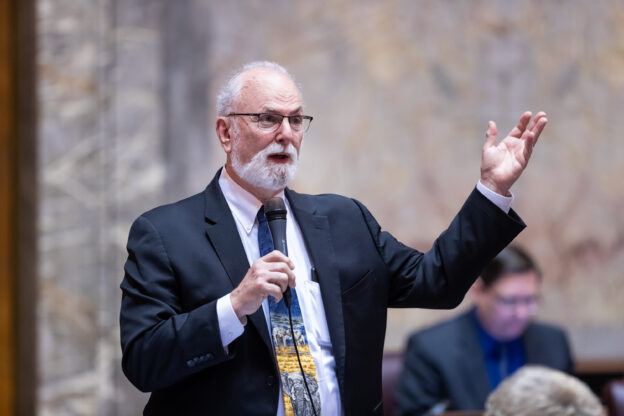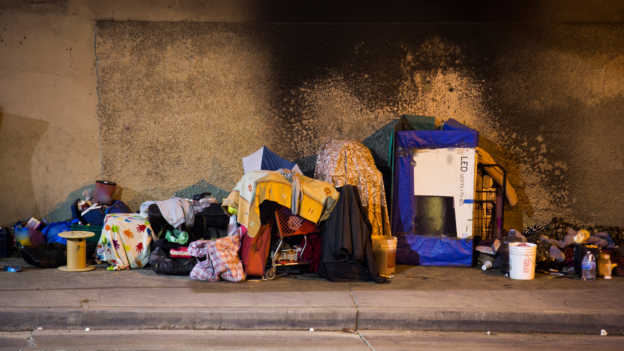While the Legislature met earlier this week for a one-day special session to address the controversial drug-possession law known as the Blake fix, Gov. Jay Inslee signed the three state budgets into law.
However, he quietly vetoed bipartisan provisions to look at why housing and homelessness in Washington is so bad.
The ranking Republican on the Senate’s housing committee, state Sen. Phil Fortunato, sponsored a budget proviso in the more-than-$70 billion state operating budget that would have created a task force to study the state’s housing supply and affordability problem.
“Most of the housing policies being adopted in Olympia only make the problem worse,” said Fortunato, R-Auburn. “We aren’t building enough housing units, and the only solution from the majority is to either tax housing production or impose more regulations that make housing more expensive. My proposal would have taken a nonpartisan look at what’s driving our housing crisis.”
While hundreds of millions of taxpayer dollars continue to pour into the state’s housing affordability crisis, Fortunato is expressing dismay and suspicion at the governor’s actions to kill any accountability for the state’s housing and homeless policy.
“I find the timing interesting,” said Fortunato. “Within a short period of time, we have The Seattle Times breaking stories about mismanagement at the King County Regional Homeless Authority and the director stepping down. Then, the governor is trying to cover up a bipartisan accounting of the state’s response to the housing and homeless debacle.”
In his veto message, the governor noted that the study didn’t spend enough money on the taskforce and that he didn’t want executive agency staff working on the taskforce.
“It’s a bit ironic because for years I’ve been working on a comprehensive solution on this issue that the majority Democrats have refused to hear, and now they’re actively trying to prevent the public from knowing why we’re in this situation,” added Fortunato. “Since the majority and the Governor have been doubling down on failure, I guess I shouldn’t be surprised he wanted to spend more money.”
Fortunato sponsored the American Dream Homes legislation that would reduce government-imposed costs to build smaller starter homes. It would also include tax incentives for builders and requirements on longer-term affordability.
“The state is making construction of homes unsustainably expensive. From permitting costs to other regulatory burdens like the Climate Commitment Act, government is adding tens of thousands of dollars to housing costs. This study would have uncovered what those impacts really are and saved families hundreds of dollars a month on housing,” Fortunato said.










